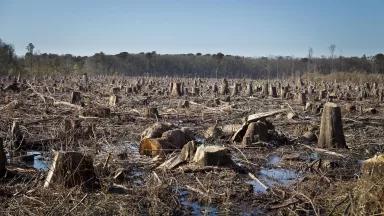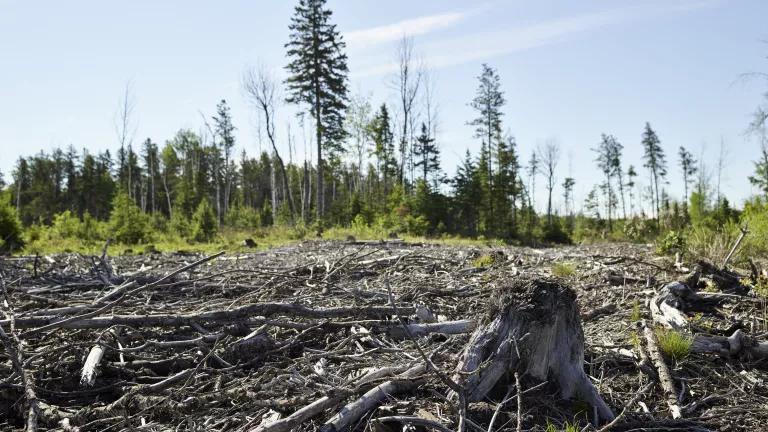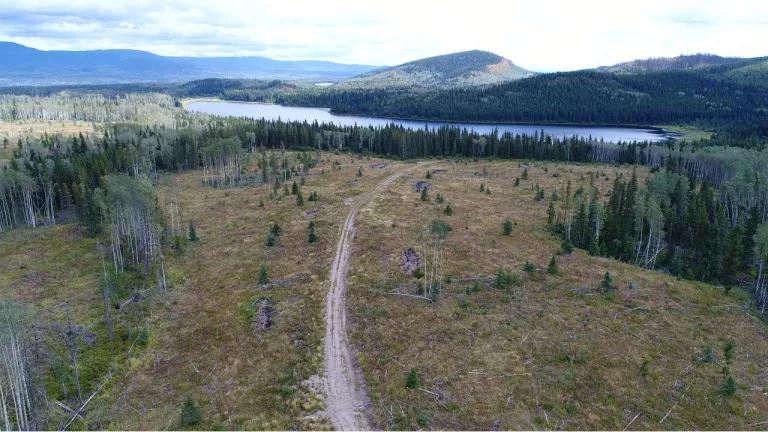The Sustainable Biomass Program: A Smokescreen for Forest Destruction and Corporate Non-accountability

© Dogwood Alliance
Unfortunately, and despite evidence to the contrary, climate and energy policies in the European Union treat biomass energy as carbon neutral, on par with other truly clean energy technologies like wind and solar. In fact, when all emissions are counted, forest biomass fuels—such as wood pellets made from whole trees and other large-diameter wood—emit carbon pollution comparable to, or in excess of, fossil fuels for more than five decades. Still, these wrongheaded policies have sent the demand for biomass soaring, and biomass producers are reaching into forests in the United States to meet it.
In 2013, biomass companies created the Sustainable Biomass Program (SBP) to provide assurances that their wood pellets and other biomass fuel are sustainable and legally sourced. However, analysis from NRDC, in partnership with the Dogwood Alliance, shows that the SBP is highly deficient in many important respects.
As a whole, the SBP is more noteworthy for what it doesn’t require rather than what it does. It functions basically as a self-assessment scheme for biomass producers, with virtually no requirements for independent on-site forest audits. Its “forest of loopholes” ignores both the emissions from burning biomass feedstocks and the substantial amount of forest carbon that can be lost through logging natural forests in requirements for carbon emissions claims.
It also lacks concrete, performance-oriented thresholds and protections, and thus provides little assurance regarding environmental or social protections in source forests and exempts potentially large amounts of biomass producers’ supply areas from the SBP’s core standards for forest sustainability and legality.
European policymakers are increasingly looking to “sustainable” sourcing standards such as the SBP to ensure their biomass imports are “green.” However, in light of these deficiencies, SBP-certified biomass projects will likely continue to pose a high degree of risk to forest integrity, local communities, and carbon-reduction goals. We caution policymakers in the United States and Europe to reassess whether the SBP can mitigate the carbon and sustainability risks inherent to burning biomass for energy and call on them to invest in truly clean and lower-cost energy technologies like solar, wind, and energy efficiency.







